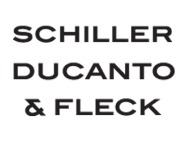Best Lawyers Near You in Morristown, New Jersey for Collaborative Law: Family Law
Practice Area Overview
In traditional divorce litigation, the parties look to the court system and judges to resolve their dispute viewing the other as the adversary. The process can result in considerable emotional and financial cost to the family. Collaborative Law is a non-adversarial process that views a family in divorce as a family in crisis that has a series of problems to be solved, rather than a series of battles to be fought. The end goal is to meet the legitimate needs of everyone involved in a restructured family.
The process starts with both Husband and Wife retaining unaffiliated collaboratively trained attorneys who commit, in writing, not to go to court but instead to work together to help the couple reach agreements beneficial to all. If an agreement cannot be reached and one or both parties choose to proceed to court, the attorneys and experts are disqualified from proceeding further on an adversarial basis. With the focus on problem solving instead of adversarial representation, there is a strong likelihood conflict will be reduced, allowing the couple to resolve and reach agreements.
The parties meet privately with their respective lawyers and possibly additional experts, called “Team Members” who may include a child specialist, a neutral financial professional, and divorce coaches, all of whom perform a valuable service helping to minimize conflict and cost by guiding the parties towards an amicable resolution.
Collaborative law is similar to but differs from mediation in some significant respects. In mediation, a neutral third party (the mediator) facilitates the parties’ negotiation to help reach a settlement but cannot give legal advice, advocate for either side, or draft the final legal papers necessary. In Collaborative Law, both parties have independent lawyers present during negotiation to provide legal advice in an educational context, thereby empowering the clients to make informed decisions about their lives and their children’s lives. When agreement is reached, the collaborative lawyers will prepare all the papers necessary and will accompany the parties to court to finalize their case.
Donald C. Schiller, Senior Partner
Schiller DuCanto & Fleck
Lawyers who have a subscription to profiles appear first.
Would you like to claim your lawyer profile?
Contact UsOur Methodology
Recognition by Best Lawyers is based entirely on peer review. Our methodology is designed to capture, as accurately as possible, the consensus opinion of leading lawyers about the professional abilities of their colleagues within the same geographical area and legal practice area.
The Process
Best Lawyers employs a sophisticated, conscientious, rational, and transparent survey process designed to elicit meaningful and substantive evaluations of the quality of legal services. Our belief has always been that the quality of a peer review survey is directly related to the quality of the voters.

